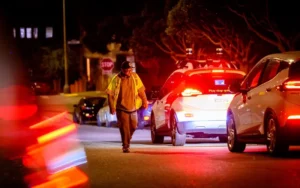
Adesola Harold Orimalade
Director of Treasury, Kiwi.comMr. Orimalade is a writer, public speaker, business consultant and current Director of Treasury for Kiwi.com. He has over 20 years of experience working in treasury, trade finance and international business.
Picture this: you are seated in the office, and someone comes standing behind you and starts a conversation, over you and with a colleague seated directly opposite?

I know what you are thinking, “Those days are gone,” and I would strongly agree that, for most people, that is true. We are now so aware of our environment that it would not be an issue.
Let’s take a step back, though…
Keeping your personal space is something we all cherish. We hear people talk about others, “invading my personal space.” In essence, that happens when another person comes uncomfortably close to you.
Personal Space is a distance that we choose to keep from others, depending on how we see our relationship with them. Therefore, we can’t help but feel uncomfortable when we are touched or brushed, or when someone is talking so close to our face or ears or when they are following us so closely.
“Personal Space” is an invisible/unseen bubble surrounding one person and protects them from others. The width of that bubble is generally influenced by a range of factors, including trust, gender, culture, the relationship between both parties, how long they have known each other, etc.






